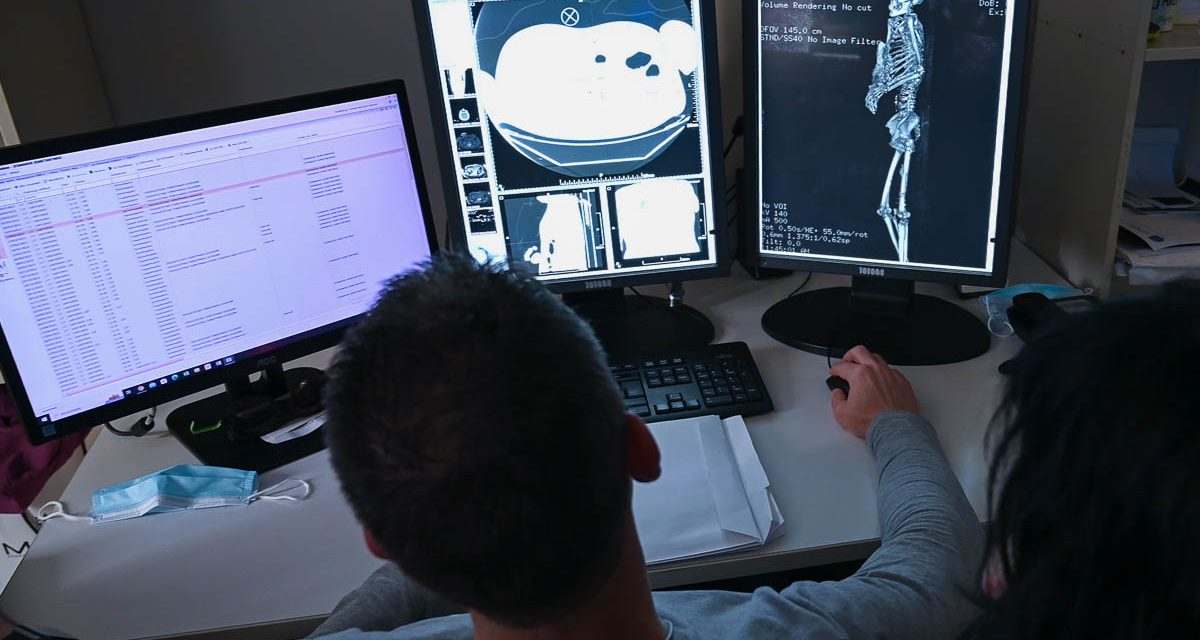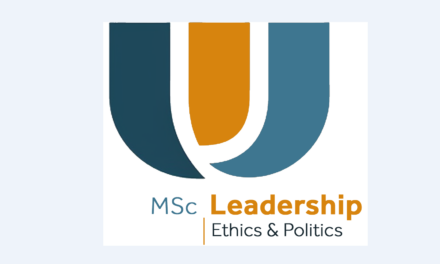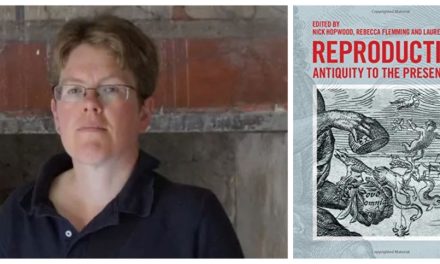The web portal Study in Greece is campaigning for the promotion and international visibility of Greek Universities and the comparative educational advantages of our country. In particular, the campaign focuses on the foreign language study programs that Greek Universities offer to Greek and international students. The initiative is supported by the General Secretariat of Higher Education of the Ministry of Education and Religious Affairs and the General Secretariat for Greeks Abroad and Public Diplomacy of the Ministry for Foreign Affairs. In this context, a number of educational programs and actions are presented in detail on a regular basis, such as undergraduate and postgraduate programs, summer schools etc, to inform international students about the many foreign language options offered by Greek Universities.
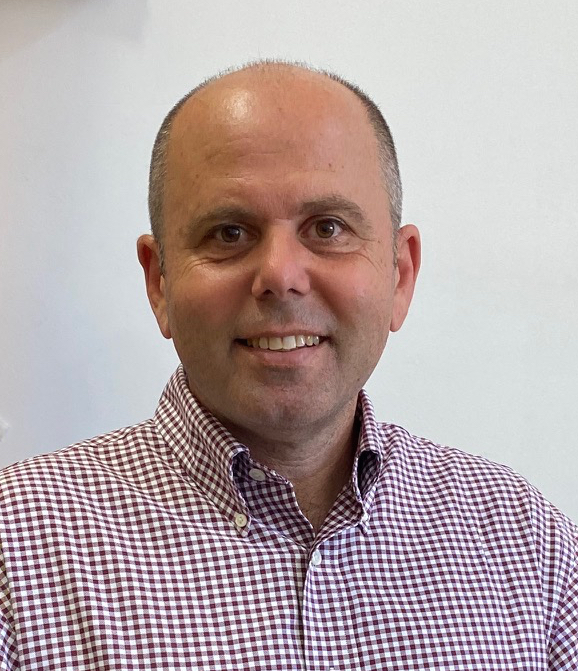
Study in Greece interviewed Professor Christos Tsatsanis, Coordinator of the International Program of Medicine offered at the University of Crete (UOC) about the program, its features and what it has to offer to international students.
Christos Tsatsanis is Professor of Clinical Chemistry at the Department of Laboratory Medicine of the University of Crete, where he coordinates of the undergraduate International Program in Medicine. He is also a Researcher at the Institute of Molecular Biology and Biotechnology, Foundation of Research and Technology Greece (FORTH) in the field of immunology, where he is a Group leader, with his lab analyzing mechanisms regulating activation and inactivation of macrophages at the level of signal transduction, cell metabolism and epigenetics.
Mr Tsatsanis, please present to us the brand new undergraduate International Program in Medicine offered by the University of Crete.
The University of Crete, School of Medicine, has been successfully training medical doctors for the last 40 years, reaching excellence in medical training and research. Over the years, the school of medicine has successfully prepared its students to become effective and reliable professionals internationally. This hard work is reflected in the rankings of the University of Crete School of Medicine. Based on this expertise, we have now launched a new, English-taught Program in Medicine, aiming to provide state-of-the-art medical training to students from all over the world.
Its structure is the same as the one of the Greek program that successfully runs to date. This is a 6-year curriculum, divided into 12 semesters. The program is organized in three study cycles, the basic science cycle (1st – 4th semester), the pre-clinical cycle (5th – 8th semester) and the clinical cycle (9th -12th semester), the latter solely focusing on clinical hands-on training.
The basic cycle includes courses such as anatomy, physiology, biochemistry, biology and other, which function as pillars to build upon the medical knowledge that will be further developed through the preclinical cycle courses. During this cycle, and as soon as the first year of studies, medical students have the opportunity to experience clinical practice through the course on Introduction to public health, where students receive their first clinical training in primary care centers.
Starting in the fifth semester, students enter the pre-clinical stage of the studies, which is the bridge between the basic and the clinical cycles. The first part of the pre-clinical cycle includes topics that offer knowledge and skills necessary for the clinical courses, such as Pathophysiology, Pharmacology, Laboratory Medicine, a course aiming to introduce students into solving clinical problems with the help of laboratory analyses using problem-based learning approach, and the introduction to Clinical Medicine, being the first hands-on clinical course on physical examination of the patient.
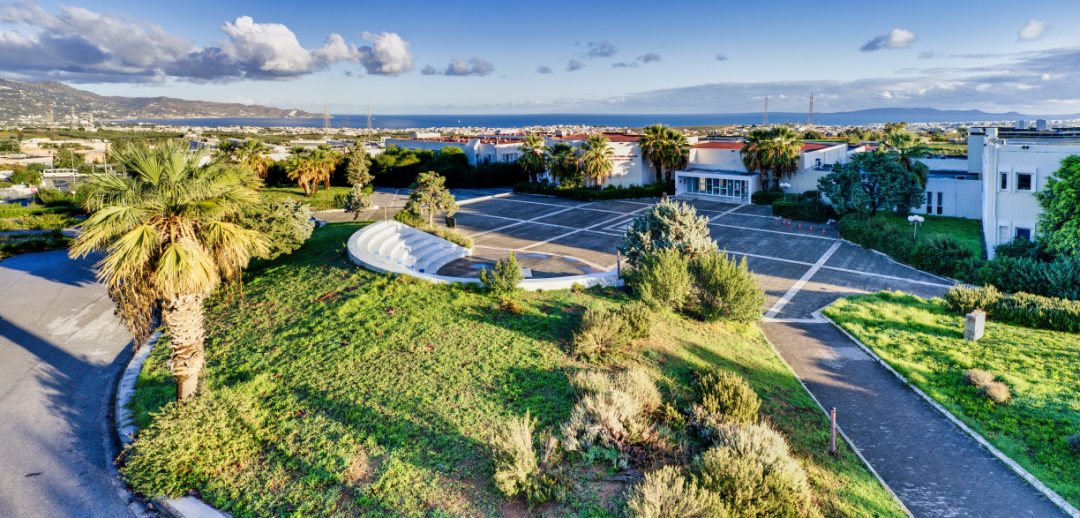
The second part of the pre-clinical cycle includes most of the theoretical clinical subjects such as Internal Medicine, Surgery, Neurology, Radiology-Medical imaging, Pediatrics etc, providing the necessary foundation for the clinical clerkships.
In the final two years of the studies, medical students are immersed into the clinical cycle of the studies, which is based on clinical clerkships in all clinics of the University Hospital, a 700-bed University hospital that offers state of the art clinical care and training to students and residents. The first part, of the clinical training comprises of the two core clinical clerkships in Internal Medicine and Surgery, each lasting 16 weeks (in semesters 9 and 10 respectively) followed by the clinical clerkships in all other medical specialties during the 11th and 12th semesters.
A fundamental element of the Undergraduate Studies Program is the existence of the general prerequisite courses for entering the third cycle of studies, and of the targeted prerequisite courses for starting specific clinical rotations. Mandatory requirements for all clinical clerkships reflect the school’s policy in providing the best possible preparation of the students to gain the most out of the clinical clerkships. In addition, successful completion of the clinical clerkships in Internal Medicine and Surgery is necessary to start the other clinical rotations.
In addition to the compulsory courses the program includes a large number of elective courses that provide knowledge and skills focused to a specific topic aiming to further expose students to specialized areas. The elective courses are allocated to each semester based on the current knowledge of the students, and aim to help them make more mature and goal-oriented choices.
In parallel, the Undergraduate Studies Program is enriched with courses (both compulsory and elective) that promote humanitarian values and enhance the development of the student’s personality based on the values of compassion and empathy, essential attributes of modern physicians.
The program has some additional unique features which stem from the fact that the Medical School of the University of Crete is strong in basic, translational and clinical research. The curriculum includes courses that focus on understanding the basis of the diseases at a molecular level. In the fifth semester a compulsory course on Molecular Medicine introduces students to the molecular basis of diseases, providing examples of the most up-to-date therapeutic targeting of molecular mechanisms in clinical practice. Several elective courses also provide insight in the pathogenetic mechanisms of diseases, reflecting current research at the different laboratories of the medical school. Another unique elective course in our curriculum is a hands-on laboratory training on Basic Science in Medicine, that gives the opportunity to students to actively participate in research being conducted at the Medical School laboratories.
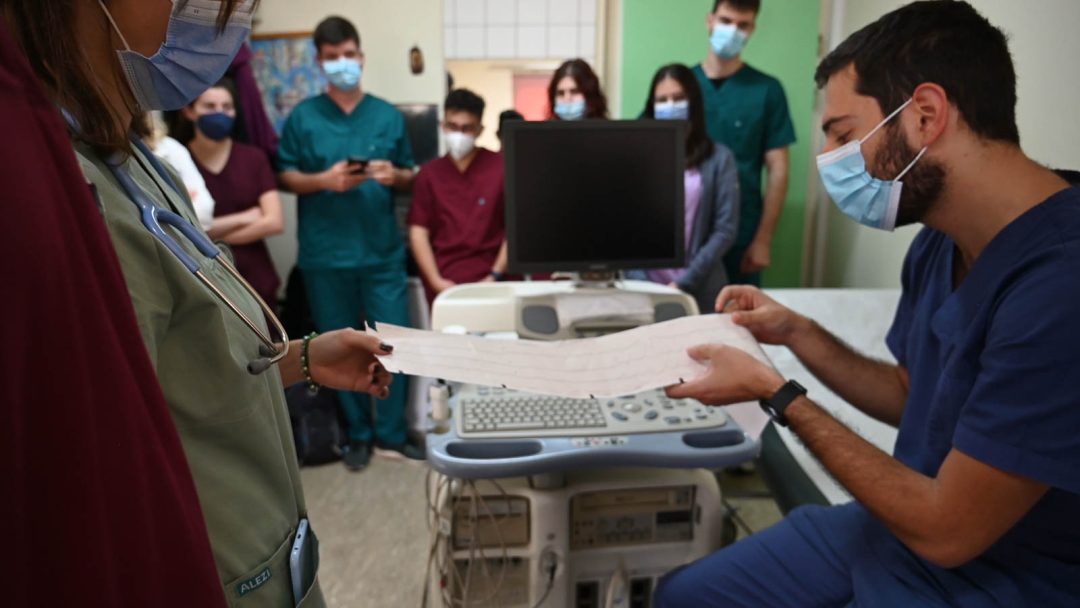
This program is the first attempt by the University of Crete to offer a comprehensive foreign language bachelor degree. Tell us about this decision and why the field of Medicine was chosen.
The University of Crete has been committed to internalization and diversity, having a strong international exchange program and several English-taught graduate programs. The Medical School is the largest school of the University of Crete and has established a strong curriculum that was recently externally evaluated receiving outstanding scores in all sub-criteria. Having faculty that has been trained at top Universities and Hospitals abroad, many of which in the United States, and maintaining active collaborations with international Universities and Hospitals, the expertise was there, ready to be utilized. Establishing an English-taught international program was within the vision of the Medical School and something strongly suggested from all external evaluations of the School in the last fifteen years. Now that the legal framework allows the establishment of such programs, we embarked in organizing the International Program in Medicine.
Since the application period has just started, please tell us why an international student should choose this specific program.
The students who will join this program will receive training through a modern curriculum and become part of a school with a long successful tradition in training the future generation of medical doctors. A main advantage of our program is having a small class, which facilitates a personal approach in teaching. The program accepts 30 students, who will have the opportunity to be taught in the form of lectures, seminars and tutorials, including hands-on work in laboratories during the first years of studies and in the clinic, during clerkships. Having a small group of students, most courses are interactive utilizing a problem-based approach to facilitate clinical thinking and decision making. Personalized training will also be supported through tutorials. In addition, each student will have an academic advisor who will provide guidance throughout the studies.
The faculty of the Medical School have received training at top Universities and Hospitals throughout the world and are in position to offer high level training to the students. To further support internationalization, a large number of visiting faculty from Europe and the US, experts in their fields, will participate in teaching, sharing their expertise in particular topics.
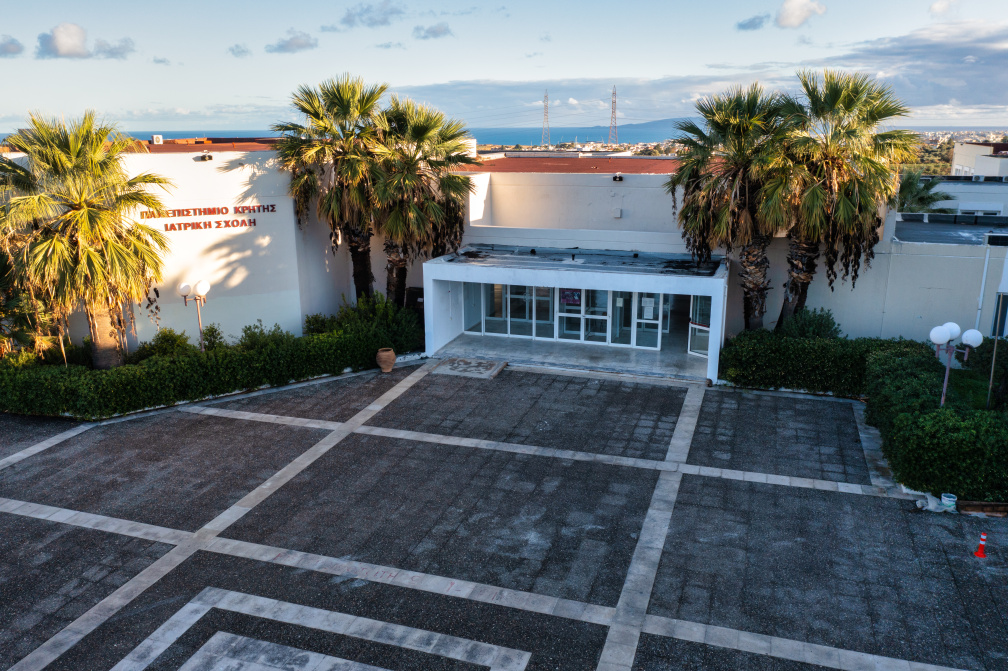
The structure and content of the curriculum includes all knowledge required for the USMLE tests, to support preparation of students for continuing their career as medical residents in the US. A large number of the University of Crete Medical School alumni follow this path and pursue residency in hospitals outside Greece and our program provides them with the necessary knowledge and skills. The Medical School has already a bilateral agreement with Boston University for student exchange and a number of outstanding students are offered summer internships at BU, while BU medical students visit the University of Crete Medical School for training. Additional exchange opportunities are available to our students at Universities and Hospitals in the US and Europe.
Students who wish to participate in summer internships and exchanges will be supported financially through our program to cover part of their mobility costs. In addition, merit-based scholarships will be awarded to the students of the International Program in Medicine through the teaching assistantship program.
Students of the International Program in Medicine will have the opportunity to join an active academic community at the University of Crete, which is organized in a modern campus having all schools and facilities, such as gym with indoor swimming pool, library, student center as well as the University Hospital, within walking distance to each other. The collaborating Foundation for Research and Technology, an internationally recognized research center and the best in Greece, is located adjacent to the University Campus, also within walking distance.
Finally, becoming a student at the University of Crete will allow living on one of the most beautiful islands of the Mediterranean, offering mild weather throughout the year with an average of 300 days of sunshine a year and unique culture, being at a crossroad of civilizations. Heraklion is a very safe and vibrant city of approximately 180.000 people among which 18.000 are students, offering an exciting student life.

Which are your expectations in terms of attracting international students?
The International Program in Medicine abides by the values of the University of Crete, which are based on academic excellence, diversity and equality. We want to attract the best candidates from around the world, since we are going to invest in training them to become outstanding physicians, members of the University of Crete family and future ambassadors of our University. Our aim is to have a class of motivated students who will receive personal attention and training throughout their studies. Attracting candidates from very diverse backgrounds and countries will further support forming an academically strong group of students.
How do you believe that both the University as well as the local community of Heraklion would benefit by attracting international students?
Heraklion attracts more than 2 million tourists every year, creating an international environment, yet the University of Crete has a very small percentage of international students, primarily due to the language barrier. Establishing an English-taught program will enhance the international profile of the University and increase the diversity of the student population, who will have a lot to gain from the culture and experience brought from the international students. This diversity will be reflected to the local community, which already has a large international community from people working in research institutes and tourism.
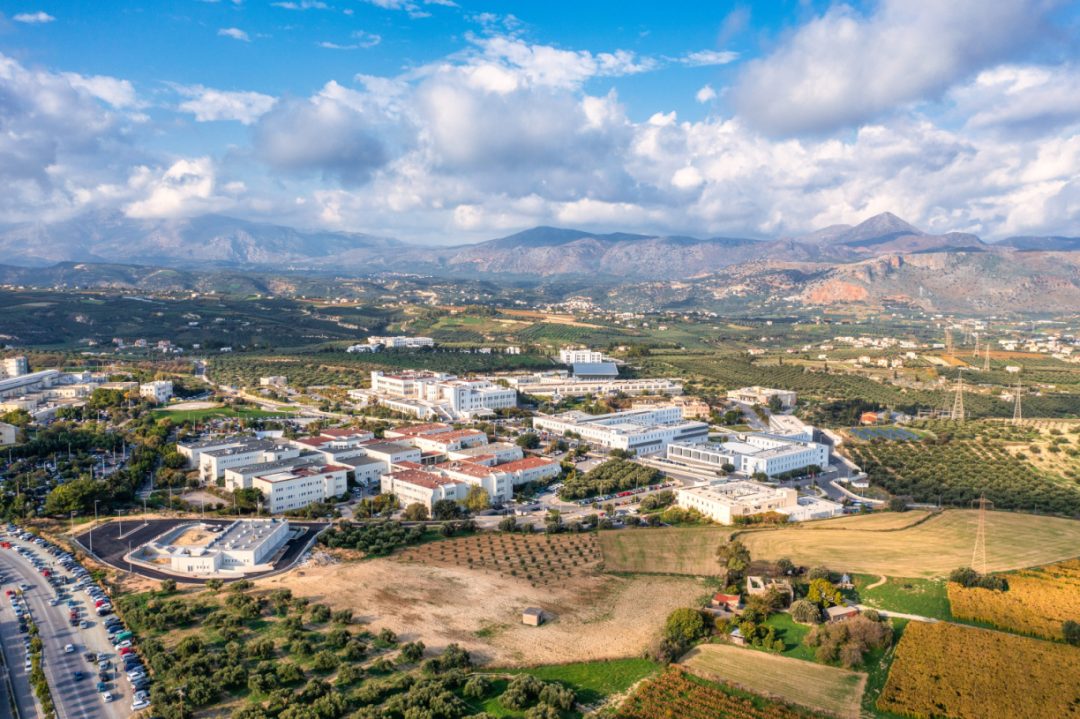
This program demonstrates that the University of Crete strongly invests in extroversion by promoting innovation and research while pursuing an interdisciplinary approach to knowledge. Tell us about these initiatives.
The University of Crete has a strong focus on research, which requires international collaborations and extroversion. The University, together with the other academic establishments and research institutes in Crete, has invested during the recent years into creating hubs of excellence in specific scientific disciplines. Close collaboration with the adjacent Foundation of Research and Technology (FORTH) has resulted in creating a center for Precision Medicine and generated state of the art infrastructures for both basic and clinical research. The University of Crete and FORTH have strong departments of computer science which find applications in medicine. Another collaboration with the Hellenic Center for Marine Research has created infrastructure for identifying health promoting products from marine sources. Collaborations with the Hellenic Mediterranean University, research institutes and companies in Heraklion has also created the innovation hub on Agrofood, in which the medical school plays a key role. These are only few examples of the research and innovation taking place at the University of Crete, without mentioning the large number of European and other international research projects that are ongoing. The expertise that stems from research is readily reflected to the curriculum of the Medical School. Students are exposed to research and several opportunities arise through these initiatives that allow students to participate.
Note that the applications deadline is on June 16.
Read also via Greek News Agenda: Greek Universities: English-taught undergraduate programs in Archaeology and Medicine attract foreign students; FORTH, the Foundation for Research and Technology in the island of Crete; Students from 27 countries at the international program of AUTh Medical School

